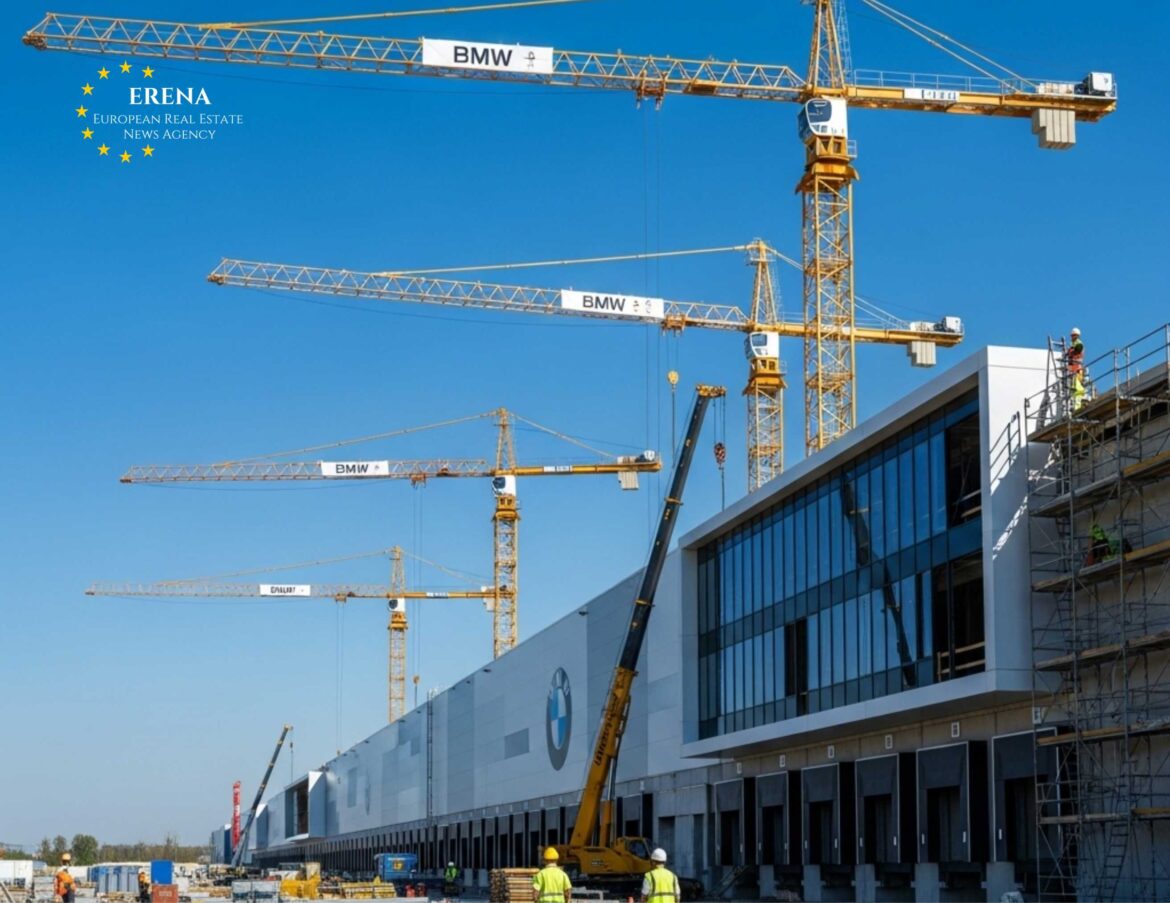BMW Group has officially broken ground on a new €140 million logistics center in the Czech city of Ostrava, strategically located near the borders of Poland and Slovakia. This major investment marks a significant step in the expansion of BMW’s logistics network across Central and Eastern Europe and is expected to play a crucial role in reinforcing the company’s supply chain resilience across the continent.
The foundation stone ceremony took place in late May 2025 in the Mošnov industrial zone, adjacent to Leoš Janáček International Airport. The facility is scheduled to become operational by 2027, creating hundreds of new jobs and enhancing regional infrastructure for the automotive sector.
Strategic Importance of the Project
The logistics hub in Ostrava is part of BMW’s broader investment program focused on improving efficiency and sustainability in its supply chain. The site was selected for its central location, offering direct access to key production plants in Germany, Czechia, Hungary, and neighboring countries.
The hub will serve as a:
- Central storage and distribution point for automotive components,
- Consolidated logistics base for spare parts and materials,
- Coordination center for supply flows between BMW’s Central European plants,
- Regional logistics solution for suppliers and distributors.
The project aims to lower transportation costs, streamline logistics routes, and boost flexibility in response to global supply chain challenges, energy market volatility, and just-in-time production models.
Economic Impact on the Region
Ostrava, the third-largest city in the Czech Republic and the heart of the Moravian-Silesian region, has historically been associated with coal mining and metallurgy. In recent years, however, the city has pursued economic diversification, focusing on modern industries, innovation, and foreign investment.
The BMW logistics hub is expected to generate over 500 direct jobs, ranging from warehouse operators to logistics specialists and IT professionals. During construction, the site will employ up to 1,000 workers from various subcontractors.
Local authorities emphasize that the project will strengthen Ostrava’s position as a transport and industrial hub, encouraging further investment in the logistics, automotive, and manufacturing sectors.
Technical Specifications of the Hub
The logistics center will be a state-of-the-art, multi-functional warehouse facility featuring high levels of automation and digital integration. Key features of the project include:
- Over 120,000 square meters of total built area,
- Temperature-controlled storage units,
- Automated conveyor systems and robotic cargo handling,
- A smart inventory management system,
- Energy-efficient infrastructure, including solar panels and rainwater harvesting.
An administrative building will house offices, planning departments, and real-time logistics monitoring, supporting operations across the regional network.
Sustainability and Green Technology
Aligned with BMW’s global ESG strategy, the Ostrava logistics hub will be developed according to BREEAM Excellent certification standards and internal company benchmarks for environmental performance.
Sustainability features include:
- Solar panel installations with a capacity of up to 5 MW,
- Rainwater collection and filtration systems for non-potable use,
- LED lighting and adaptive daylighting controls,
- Charging stations for electric trucks and fleet vehicles,
- Smart ventilation and climate control systems.
BMW aims for the facility to achieve carbon-neutral operations within the first three years of activity, positioning it as one of the greenest hubs in its global logistics portfolio.
Digitized Logistics Operations
A defining feature of the Ostrava hub will be its full digital integration. The site will be linked to BMW’s Logistics 4.0 platform, incorporating:
- End-to-end supply chain visibility,
- Use of Big Data and machine learning to forecast and optimize flows,
- Real-time route adjustments based on demand and traffic conditions,
- Seamless API connectivity with suppliers and third-party logistics partners.
These digital tools will not only increase operational efficiency but also allow for rapid response to disruptions, making the supply chain more resilient and adaptive.
Project Partners and Infrastructure Connectivity
The development is being carried out in cooperation with the Czech Ministry of Industry and Trade, the national investment agency CzechInvest, and the regional government of Moravian-Silesian Region.
Ostrava offers excellent infrastructure, including:
- D1 and D56 motorways, linking Czechia with Poland and Slovakia,
- A well-developed railway network for cargo transport,
- Proximity to Leoš Janáček International Airport,
- Future integration into multimodal transport corridors under development.
BMW is also expected to attract a range of suppliers and subcontractors to the region, encouraging further localization of supply chains and supporting regional economic development.
Outlook and Corporate Strategy
The Ostrava hub will be instrumental in strengthening BMW’s production and logistics ecosystem in Central Europe. Beyond cost and efficiency benefits, the project will allow BMW to:
- Reduce carbon emissions from logistics operations,
- Increase local content and proximity to production,
- Mitigate global supply chain risks through regionalization,
- Support the company’s transition to sustainable mobility and manufacturing.
The project also aligns with BMW’s global strategy “BMW iFACTORY”, which focuses on digitalization, flexibility, and sustainability across all manufacturing and logistics operations.
Conclusion
BMW’s €140 million investment in a logistics hub in Ostrava is not just another infrastructure project — it is a strategic move toward greener, smarter, and more resilient supply chains. With cutting-edge technology, strong environmental credentials, and prime geographic positioning, the facility is set to become a cornerstone of the company’s operations in Eastern and Central Europe. For Ostrava, it represents new jobs, modern infrastructure, and renewed industrial relevance. For BMW, it’s a leap forward in securing its leadership in the global mobility transition.

